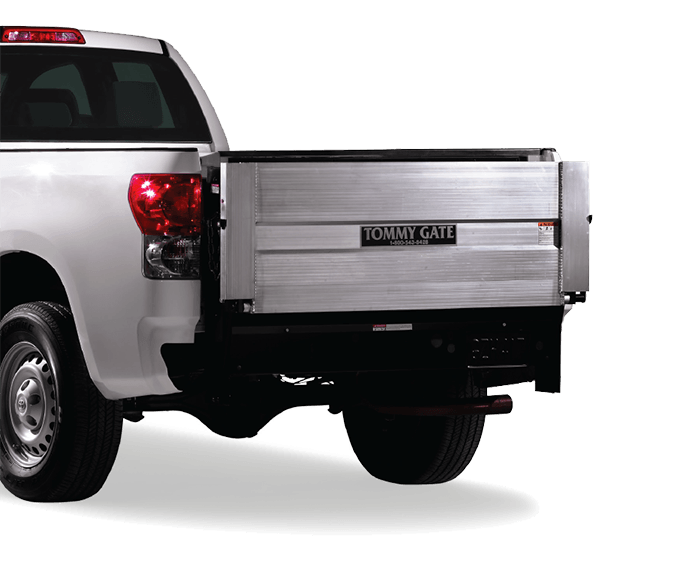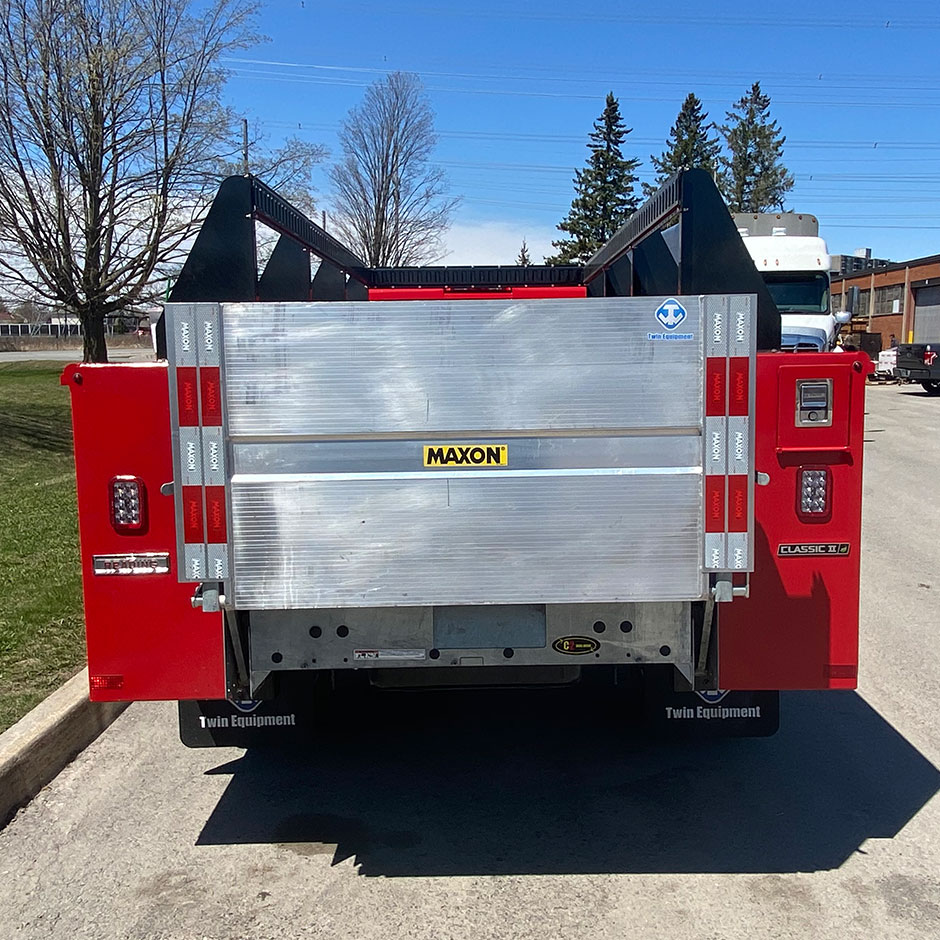Liftgates For Pickup Trucks: Transforming Your Hauling Capability pickup.truckstrend.com
Pickup trucks are renowned for their versatility, serving as workhorses for countless individuals and businesses. From hauling construction materials to weekend adventure gear, their open beds offer unparalleled utility. However, when it comes to loading and unloading heavy, bulky, or awkward items, even the most robust pickup can present a significant challenge. This is where a liftgate comes into play, transforming your truck from a simple carrier to a powerful, efficient, and safer material handling solution.
A liftgate, at its core, is a hydraulic or electric-powered platform mounted to the rear of a vehicle, designed to lift and lower cargo between ground level and the truck bed. For pickup trucks, these devices bridge the gap between manual labor and mechanical assistance, dramatically improving efficiency, reducing the risk of injury, and expanding the types of loads you can manage independently. Whether you’re a landscaper moving heavy bags of soil, a delivery driver transporting appliances, a contractor dealing with building materials, or simply an individual needing to move a large piece of furniture, a liftgate turns a daunting task into a manageable one. It’s an investment that pays dividends in time saved, injuries avoided, and the sheer capability it adds to your trusty pickup.
Liftgates For Pickup Trucks: Transforming Your Hauling Capability
Understanding Liftgates for Pickup Trucks: More Than Just a Tailgate
While your pickup truck’s standard tailgate serves well for general access and light loads, it offers no assistance when faced with objects weighing hundreds of pounds or more. Manually lifting such items not only poses a significant risk of back injuries, strains, and dropped cargo but also demands multiple people and considerable effort.
Liftgates for pickup trucks address this fundamental limitation. They effectively replace or augment the traditional tailgate, providing a robust, stable platform that can be raised and lowered at the push of a button. This mechanical advantage eliminates the need for ramps, forklifts (in many scenarios), or excessive manual lifting, making your operations safer, faster, and more efficient. It’s about leveraging technology to maximize your truck’s potential and protect your most valuable assets: your cargo and your body.
Key Benefits of Installing a Liftgate on Your Pickup
The advantages of equipping your pickup truck with a liftgate extend far beyond mere convenience. They translate directly into tangible benefits for both personal and professional users:
- Enhanced Safety and Injury Prevention: This is arguably the most significant benefit. By eliminating the need for manual heavy lifting, liftgates drastically reduce the risk of strains, sprains, back injuries, and other musculoskeletal disorders. They also provide a stable platform, minimizing the chance of cargo slipping or falling during loading/unloading, protecting both the operator and the cargo.
- Increased Efficiency and Time Savings: What might take two or three people and considerable effort to load manually can often be done by one person with a liftgate in a fraction of the time. This accelerated process means more deliveries, more jobs completed, and less downtime, directly impacting productivity and profitability.
- Greater Versatility and Expanded Capabilities: A liftgate allows your pickup to handle a wider variety of cargo that would otherwise be impossible or extremely difficult to transport. Think large appliances, heavy machinery, industrial equipment, palletized goods, drums, or even large pieces of furniture. This expanded capability opens up new business opportunities and makes your truck an even more indispensable tool.
- Reduced Labor Costs: For businesses, a liftgate can reduce the number of personnel required for certain tasks, or free up employees for other duties, leading to significant labor cost savings over time.
- Professional Image: For businesses, a truck equipped with a liftgate projects a more professional and capable image to clients. It signifies a commitment to efficiency, safety, and reliable service.
- Cargo Protection: The smooth, controlled movement of a liftgate minimizes the risk of damage to valuable cargo during loading and unloading, protecting your assets and reducing potential claims or losses.


Types of Liftgates for Pickup Trucks
While the core function remains the same, liftgates come in various designs, each suited for different applications and truck configurations. Understanding these types is crucial for making an informed decision:
- Pickup-Specific/Mini Liftgates: These are often smaller, lighter-duty liftgates designed to integrate seamlessly with a pickup truck’s existing structure, sometimes replacing the original tailgate entirely. They are ideal for lighter loads (e.g., up to 1,000 lbs) and users who need occasional assistance with items like lawnmowers, tools, or smaller equipment. They are generally more compact and less intrusive.
- Tuckaway Liftgates: As the name suggests, these liftgates fold and store neatly underneath the truck bed when not in use. This design is highly popular because it allows for full, unobstructed access to the truck bed and rear bumper when the liftgate is stowed. They offer a good balance of capacity (often 1,000-2,500 lbs) and convenience, making them versatile for users who don’t need the liftgate constantly deployed.
- Column/Rail Liftgates: These are robust, heavy-duty liftgates characterized by vertical columns or rails mounted to the rear of the truck. The platform moves up and down along these rails. Column liftgates offer the highest weight capacities (often 1,500-3,000+ lbs), larger platforms, and exceptional stability, making them suitable for continuous, heavy-duty commercial use with large and bulky items like pallets or heavy machinery. They remain visible at the rear of the truck.
- Slider Liftgates: Similar in concept to tuckaway liftgates, slider liftgates also store underneath the truck bed. However, instead of folding, the platform slides horizontally out from under the truck before lowering. They offer excellent stability and often provide a larger platform than typical tuckaways while still allowing full access to the truck bed when stowed. They are a good option for those needing a larger platform with the convenience of tuckaway storage.

Important Considerations Before Purchasing
Investing in a liftgate is a significant decision. To ensure you choose the right model for your needs and truck, consider the following factors carefully:
- Weight Capacity: Accurately assess the maximum weight of the items you will regularly lift. Always choose a liftgate with a capacity slightly higher than your estimated maximum to provide a safety margin and account for future needs.
- Platform Size: The platform must be large enough to safely accommodate your largest anticipated cargo. Consider both width and depth. Larger platforms offer more flexibility but can add to the overall weight and cost.
- Truck Compatibility: Not all liftgates fit all trucks. Key factors include your truck’s make, model, year, bed length, and chassis type. Ensure the liftgate’s design and mounting points are compatible.
- Power Source: Most liftgates operate on 12-volt DC power, typically drawing from your truck’s electrical system. For heavy use, an auxiliary battery dedicated to the liftgate might be necessary to prevent draining the truck’s main battery.
- Installation Requirements: Liftgates are complex systems requiring electrical, hydraulic, and structural modifications. Professional installation is highly recommended to ensure safety, proper function, and warranty validity.
- Added Weight and Payload: Remember that a liftgate adds significant weight to your truck (often 300-1000+ lbs), which will reduce your truck’s available payload capacity. Factor this into your calculations.
- Maintenance and Durability: Research brands known for their reliability and ease of maintenance. Consider the availability of parts and service in your area.
- Budget: Liftgate prices vary widely based on type, capacity, features, and brand. Factor in not just the purchase price but also professional installation costs and potential long-term maintenance.
- Frequency of Use: For occasional, light use, a simpler, more compact model might suffice. For daily, heavy-duty commercial operations, a robust, high-capacity unit will be a more cost-effective long-term solution.
Installation and Maintenance: Ensuring Longevity and Safety
Proper installation and regular maintenance are paramount to the safe, reliable, and long-lasting operation of your liftgate.
Installation:
Given the electrical, hydraulic, and structural components involved, professional installation is strongly advised. A certified installer will:
- Assess Compatibility: Confirm the liftgate is suitable for your truck’s frame, suspension, and electrical system.
- Reinforce Structure: Ensure the truck’s frame can handle the added weight and stress of the liftgate and its load.
- Proper Mounting: Securely attach the liftgate frame to the truck chassis according to manufacturer specifications.
- Electrical Wiring: Correctly wire the liftgate to the truck’s power source, often requiring a dedicated heavy-duty circuit and potentially an auxiliary battery.
- Hydraulic System Setup: Fill and bleed the hydraulic system, ensuring proper fluid levels and leak-free operation.
- Testing and Calibration: Thoroughly test all functions and calibrate the liftgate for smooth operation.
Improper installation can lead to malfunctions, damage to your truck, and dangerous operating conditions.
Maintenance:
Regular maintenance is key to preventing costly breakdowns and ensuring safety. A general maintenance schedule should include:
- Daily/Pre-Use Check: Visually inspect for loose bolts, damaged wiring, hydraulic leaks, and proper platform function.
- Weekly/Bi-Weekly: Lubricate all pivot points, pins, and rollers with appropriate grease. Check hydraulic fluid levels and top off if necessary.
- Monthly/Quarterly: Inspect all electrical connections for corrosion or looseness. Check hydraulic hoses for wear or cracks. Inspect the platform surface for damage. Clean any debris from moving parts.
- Annually/Bi-Annually: Have a professional service technician perform a comprehensive inspection, including hydraulic system pressure checks, motor health, and structural integrity.
Adhering to the manufacturer’s specific maintenance guidelines will maximize your liftgate’s lifespan and performance.
Choosing the Right Liftgate for Your Needs: Practical Advice
Navigating the options can be overwhelming, but a systematic approach helps:
- Define Your Needs: What are you primarily lifting? How heavy is it? How often will you use the liftgate? Do you need full access to your truck bed when the liftgate isn’t in use?
- Evaluate Your Truck: Understand your truck’s gross vehicle weight rating (GVWR), payload capacity, bed dimensions, and electrical system.
- Research Brands: Look into reputable liftgate manufacturers like Tommy Gate, Maxon, Waltco, Anthony, and Palfinger. Read reviews and look for local dealers/service centers.
- Get Quotes: Contact several dealers or installers. Don’t just ask for a price; inquire about specific models, installation costs, warranty, and after-sales support.
- Consider the Long-Term: While a cheaper option might be appealing, a more durable, higher-capacity liftgate might prove more cost-effective over years of use, especially for commercial applications.
- Safety Features: Look for models with safety features like non-slip platforms, safety lights, audible alarms, and emergency stop buttons.
Liftgates For Pickup Trucks: Estimated Price Guide
Please note that these prices are estimates only and can vary significantly based on the specific brand, model, features, regional market conditions, and the complexity of installation. Always obtain direct quotes from certified dealers/installers.
| Liftgate Type | Capacity Range (lbs) | Typical Platform Size (W x D) | Estimated Price Range (USD) (Hardware Only) | Key Features & Considerations |
|---|---|---|---|---|
| Pickup-Specific/Mini | 500 – 1,000 | 30-48" x 24-36" | $2,000 – $4,500 | Lighter duty, often replaces tailgate, simpler hydraulics. Good for occasional light use. |
| Tuckaway | 1,000 – 2,500 | 48-60" x 30-48" | $4,000 – $8,000 | Stores under bed, allows full bed access. Excellent versatility for varied cargo. |
| Slider | 1,000 – 2,000 | 48-60" x 30-48" | $4,500 – $9,000 | Slides out horizontally, compact storage, good platform size. Similar to tuckaway. |
| Column/Rail | 1,500 – 3,000+ | 60-80" x 36-60" | $5,000 – $10,000+ | High capacity, very robust, external frame. Ideal for heavy, frequent commercial use. |
| Estimated Installation Cost | N/A | N/A | $800 – $2,500+ | Varies significantly by complexity, shop labor rates, and necessary vehicle modifications. |
| Optional Features | N/A | N/A | $100 – $1,000+ | Wireless remote controls, cart stops, safety lights, custom platform surfaces, auxiliary battery kits. |
Note: These prices do not include any potential vehicle modifications (e.g., suspension upgrades if overloading is a concern), shipping costs, or taxes.
Frequently Asked Questions (FAQ) About Liftgates for Pickup Trucks
Q1: Can I install a liftgate on my pickup truck myself?
A1: While theoretically possible for a highly skilled individual with specialized tools and knowledge, professional installation is strongly recommended. Liftgates involve complex hydraulic, electrical, and structural components. Improper installation can lead to safety hazards, malfunctions, and voided warranties.
Q2: Will a liftgate affect my truck’s payload capacity?
A2: Yes, a liftgate adds significant weight to your truck (ranging from 300 to over 1,000 pounds), directly reducing your available payload capacity. Always factor the liftgate’s weight into your total payload calculations to avoid overloading your truck.
Q3: Do I need a special battery for a liftgate?
A3: For most liftgates, your truck’s standard 12-volt battery can provide power. However, for heavy or frequent use, an upgraded heavy-duty battery or a dedicated auxiliary battery is often recommended or required to ensure reliable operation and prevent draining your truck’s starting battery.
Q4: How long do liftgates typically last?
A4: With proper maintenance and regular servicing, a high-quality liftgate can last 10 to 15 years or even longer. Key components like hydraulic hoses, pumps, and electrical systems may require replacement over time, but the core structure is very durable.
Q5: Are liftgates universal, or do I need a specific one for my truck?
A5: Liftgates are generally not universal. They are designed for specific vehicle types, and often for particular makes, models, and bed configurations of trucks. Compatibility depends on factors like frame dimensions, bed length, and electrical system. Always verify compatibility with a reputable dealer or installer.
Q6: Can I still open my tailgate with a liftgate installed?
A6: It depends on the type of liftgate. Tuckaway and slider liftgates store underneath the truck bed, allowing full, unobstructed access to your original tailgate and truck bed when the liftgate is stowed. Pickup-specific liftgates that replace the tailgate function as the new tailgate and cannot be opened separately. Column/rail liftgates are mounted externally and may obstruct tailgate access depending on their design.
Q7: What kind of maintenance is required for a liftgate?
A7: Regular maintenance is crucial. This includes daily visual inspections, weekly lubrication of pivot points and rollers, monthly checks of hydraulic fluid levels and electrical connections, and annual professional servicing to inspect hydraulic pressure, motor health, and overall structural integrity. Refer to your liftgate’s owner’s manual for specific guidelines.
Conclusion
A liftgate for your pickup truck is far more than an accessory; it’s a transformative tool that significantly enhances your vehicle’s utility, safety, and efficiency. By mitigating the physical demands of loading and unloading heavy items, it protects you and your employees from injury, saves valuable time, and expands the range of tasks your pickup can effortlessly handle. While the initial investment requires careful consideration of type, capacity, and installation, the long-term benefits in terms of productivity, safety, and versatility make a liftgate an invaluable asset for anyone regularly transporting substantial cargo. It’s an investment that empowers your pickup, turning it into a truly indispensable workhorse capable of tackling nearly any hauling challenge.



